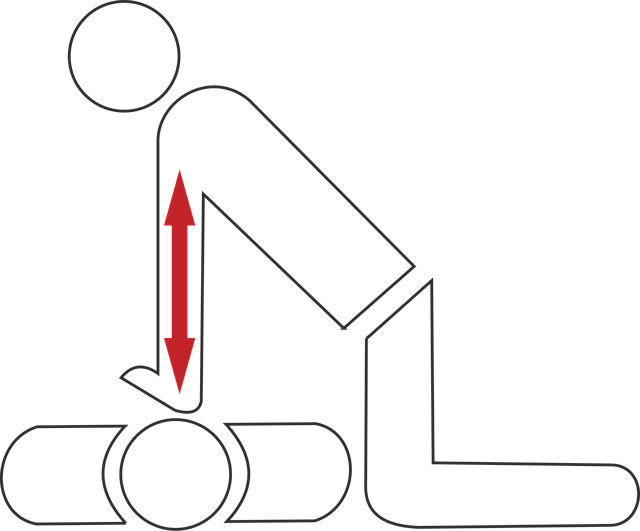Massage abuse in Colorado Springs highlights the need for stronger regulations and enforcement by the Colorado Board of Massage Therapy Practice. A massage abuse law firm advocates for victims, closes loopholes, and pushes for safer, more professional practices. By addressing unregulated pricing, inadequate licensing, and limited consumer protections, this firm ensures client safety and ethical standards for licensed therapists in a vulnerable industry.
In Colorado Springs, while massage therapy offers numerous benefits, navigating regulatory gaps can lead to serious consequences, including instances of massage abuse. This article explores how to advocate for better regulations to protect both clients and therapists. We delve into current laws, their impact on the industry, and common issues such as licensing loopholes and inconsistent enforcement. Additionally, we provide strategies for advocacy and emphasize the power of building coalitions to drive meaningful change, ensuring Colorado Springs has strong massage therapy protections in place. For those seeking legal assistance with massage abuse cases, a dedicated Colorado law firm is crucial.
Understanding Massage Therapy Regulations in Colorado Springs

In Colorado Springs, massage therapy regulations are governed by the state’s licensing and oversight systems. Massage therapists must be licensed through the Colorado Board of Massage Therapy Practice to operate legally. However, despite these requirements, there have been instances of massage abuse, highlighting a need for stronger regulations and enforcement. A massage abuse law firm in Colorado Springs plays a vital role in advocating for victims and ensuring accountability among practitioners.
Understanding the current landscape is crucial. The city’s regulatory framework includes standards for training, licensing exams, and ongoing education. Yet, loopholes and non-compliance can persist, leading to unethical practices. By addressing these issues openly, residents and advocates can push for reforms that prioritize client safety and foster a professional massage therapy environment in Colorado Springs.
The Impact of Inadequate Laws on Clients and Therapists

Inadequate laws surrounding massage therapy in Colorado Springs can have severe consequences for both clients and therapists. Without robust regulations, clients run the risk of experiencing massage abuse, ranging from inappropriate touching to serious physical harm. This is particularly concerning given that many individuals seek massage therapy for stress relief or recovery from injuries, making them vulnerable to exploitation.
For therapists, a lack of clear guidelines can lead to legal uncertainty and even potential liability. A massage abuse law firm in Colorado Springs highlights the importance of proper legislation to protect both parties. Effective regulations ensure clients receive quality care in a safe environment and provide therapists with clear boundaries, fostering a professional and ethical practice.
Common Issues: Identifying Areas for Improvement

Massage therapy, a practice meant to promote relaxation and healing, is unfortunately not immune to issues that can arise from lack of proper regulation. In Colorado Springs, as in many places, there’s room for improvement when it comes to protecting clients from potential massage abuse. Common problems include unregulated pricing, inadequate licensing requirements, and limited consumer protections. These issues can leave clients vulnerable to unfair business practices, unsafe service quality, and even physical or emotional harm.
A look at existing laws reveals gaps that a massage abuse law firm in Colorado Springs would highlight. For instance, some jurisdictions might not mandate thorough background checks for therapists, leaving the public at risk. Additionally, vague or outdated regulations may fail to address modern practices like cupping therapy or hot stone massage, which require specialized skills and safety precautions. By identifying these areas of concern, advocates can push for legislation that prioritizes client safety, ensures ethical standards, and fosters a professional environment for licensed massage therapists.
Strategies to Advocate for Stronger Protection Measures

Advocating for stronger protection measures in massage therapy involves a multi-faceted approach. One key strategy is to engage with local lawmakers and regulatory bodies. Contacting your representatives, attending public hearings, and participating in legislative sessions can help ensure that new laws or amendments address the concerns of both therapists and clients. Additionally, forming alliances with like-minded organizations, such as a massage abuse law firm in Colorado Springs, can amplify your voice and provide valuable expertise.
Another effective tactic is to gather and share data on massage therapy-related incidents within the community. This includes documenting cases of alleged abuse, conducting surveys to gauge client satisfaction and safety concerns, and presenting this information to local authorities and the media. By leveraging evidence and personal narratives, you can create a compelling case for stricter regulations that prioritize the well-being and security of massage therapy clients in Colorado Springs.
Building a Coalition: Collaborating for Change

Building a coalition is an effective strategy to advocate for better regulations in massage therapy. In Colorado Springs, where there’s a growing concern over potential massage abuse cases, coming together can amplify your voice and create a stronger impact. Engage with local businesses, therapists, and concerned citizens to form a united front. Collaborate with established organizations focused on consumer protection or advocacy for wellness industries. This collective approach will help in sharing resources, knowledge, and experiences, strengthening the movement towards stricter regulations.
A diverse coalition allows for a broader perspective and more creative solutions. By combining legal expertise from massage abuse law firms in Colorado Springs, industry insights from therapists, and community support, you can create a compelling case for change. This collective effort ensures that your advocacy is well-informed, strategic, and impactful, ultimately leading to the establishment of stronger guidelines and protections for clients seeking therapeutic services.





